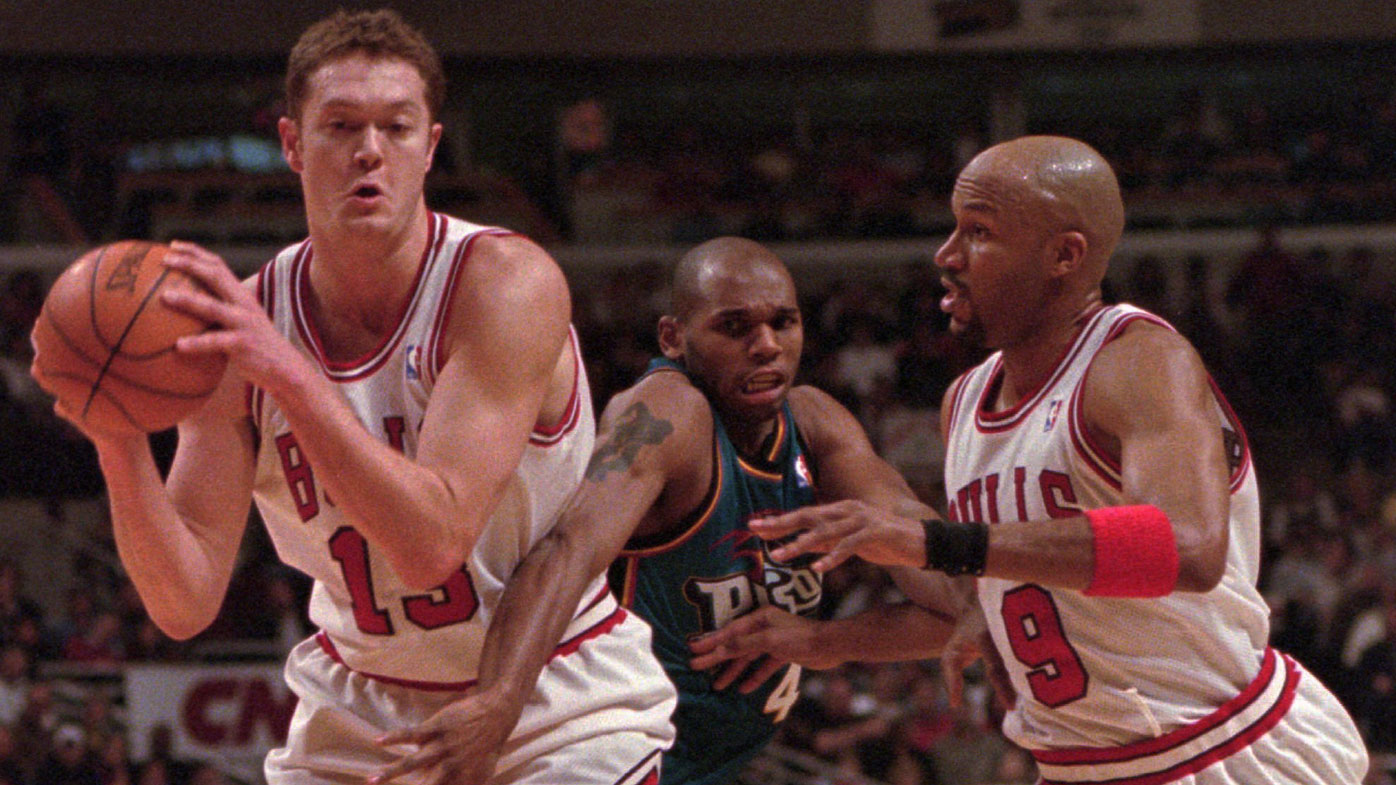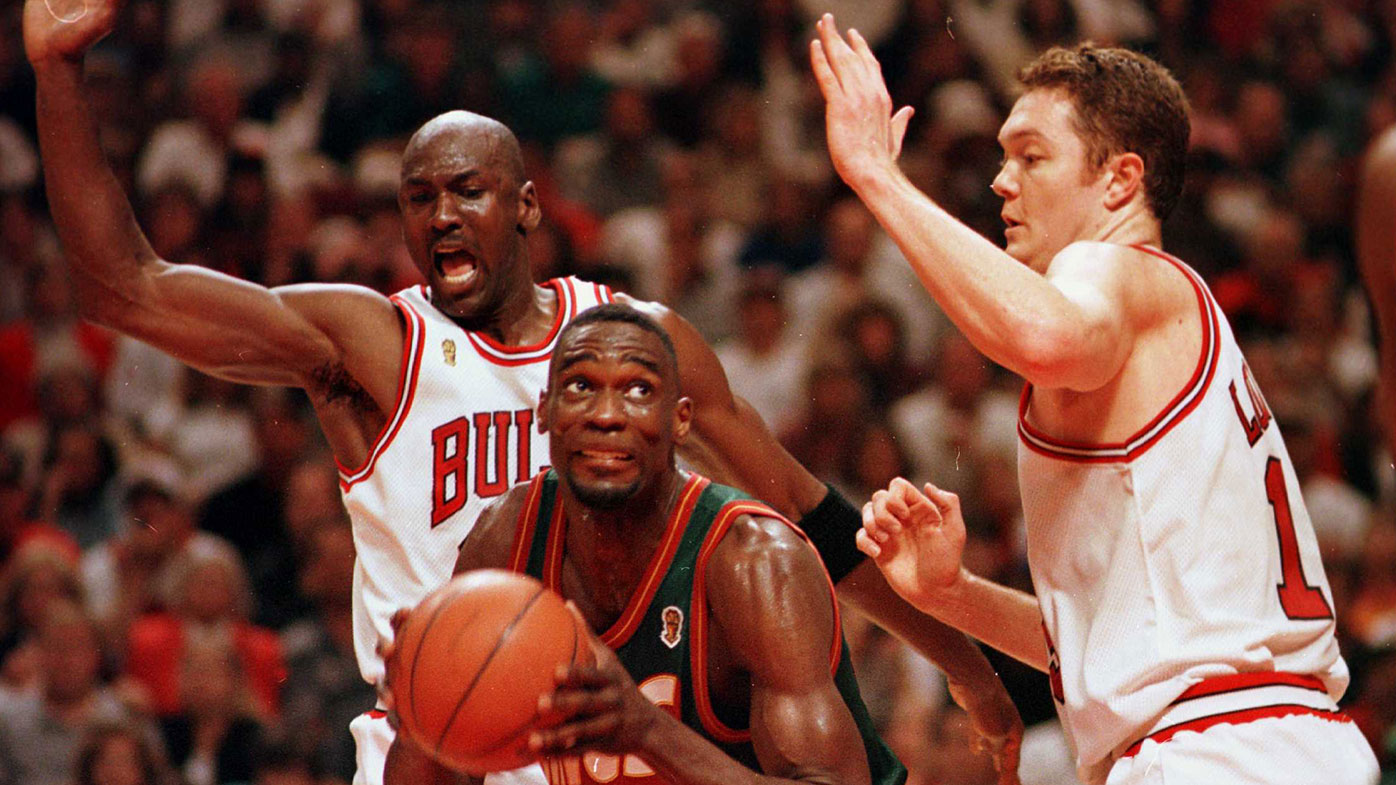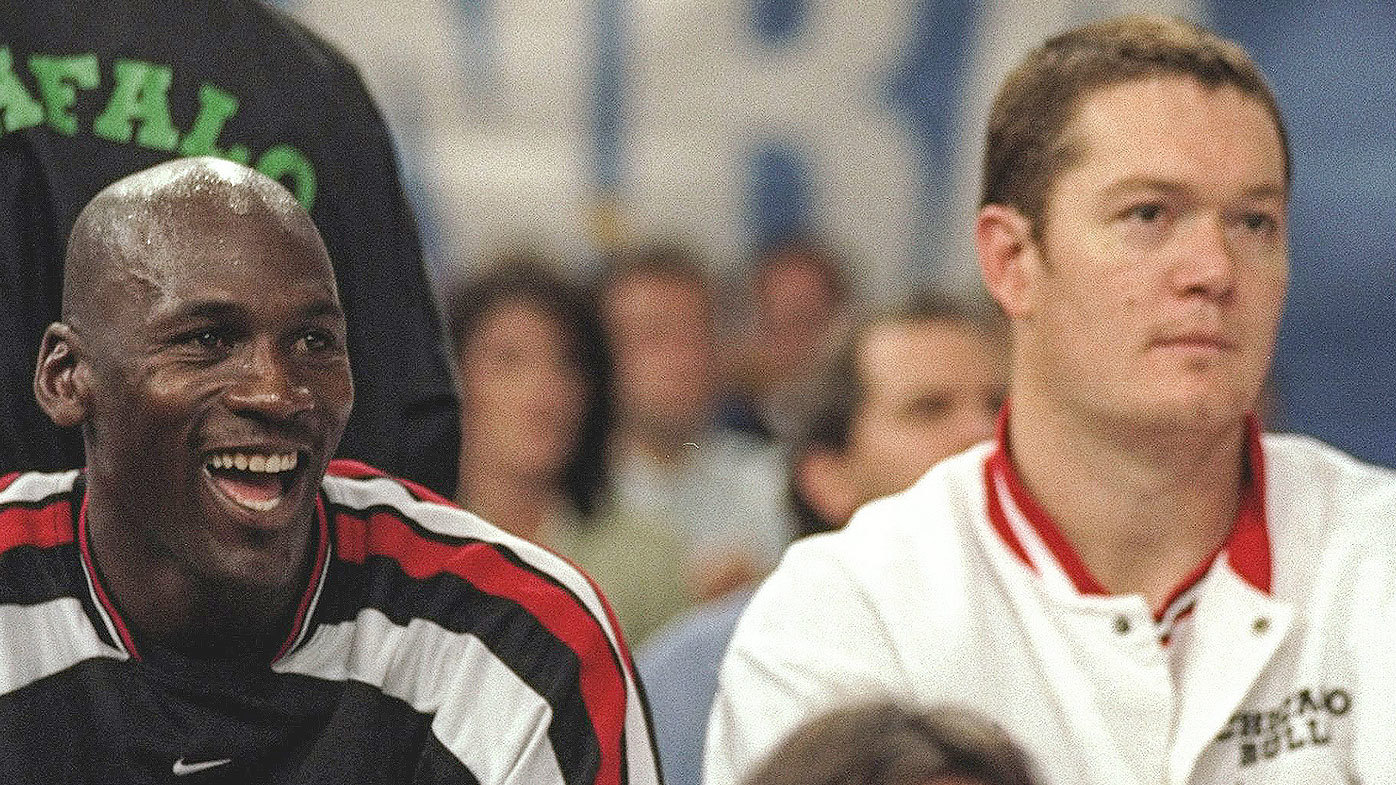While Luc Longley has remained tight-lipped about the The Last Dance, the Australian's relationship with Michael Jordan has come under the microscope.
Longley became the Bulls' starting centre during their historic 1995–96 season when they set the NBA record for most wins in a regular season with 72, and continued in that role through the side's next two championships.
Yet the West Australian's absence from ESPN's The Last Dance, has led many down under and abroad to speculate whether there was more to the story.
Even the New York Times wrote: "After Michael Jordan, Scottie Pippen and Denis Rodman, Luc Longley was as significant as any Bull to the second three-peat, the team's starting centre and a key piece in the final season of Jordan's time with the Bulls. But the 7-foot Australian is not heard from in The Last Dance, the 10-part ESPN documentary on that final season. He hasn't been heard from in any non-documentary interviews either, having reportedly changed his number to avoid interviews."

Longley is seen here and there during training clips but doesn't feature in the series until the eighth episode. Documentary director Jason Hehir pointed to budgetary issues for Longley's absence, because the cost of sending a film crew to his residence at Esperance, five hours from Perth, would have been too steep.
Conspiracy theories online may suggest other things may be at play but Longley's clashes with Jordan and his place within the team has been well documented in the past.
Legendary Bulls coach Phil Jackson revealed a clash he and Jordan once had with the Aussie at the beginning of the 1997-98 season, when the Bulls were on a poor run without star Scottie Pippen, who decided to have surgery at the beginning of the year in a contract dispute with officials.
Jackson's diary entries from that season were published in ESPN The Magazine's May, 1998, edition — and detailed one particular spat between the GOAT, Longley and the iconic coach during a video session.
"Sometimes in a film session, I get upset and wonder what we're doing, why we can't put it together consistently," Jackson re-calls in his memoirs.
"The other day, I stopped the film after watching Luc Longley screw up again, and I just said, 'Everybody makes mistakes. And I made one coming back here with this team this year'.
"I meant it in sort of a lighthearted way. But then Michael says, 'Me too'. So it weighed pretty heavy on everyone.

"Later on in the session, Luc says, kind of to everyone, in the dark, 'It's easy to criticise'.
"He was hurt. Then (assistant coach) Tex Winter jumped in and said, 'Luc, I don't understand you. You don't have the right attitude'.
"A shrug is a big deal for Luc; he is a loveable guy. But he says to Tex, 'I wasn't talking about the coaching staff. Michael is the one being critical. I just want to let him know it's easy to criticise'.
"And then Michael says, 'The only thing that upsets me is when we lose. I think you should resolve to make yourself better the next time. Change'. The room was charged. It was sombre. Michael was sombre.
"He doesn't play cards with the guys like he used to. He is serious. He hasn't smiled a genuine smile in two weeks. He's letting everyone know it's time. He said, 'It's over. We're not gonna lose anymore'.
"I'm sick of losing too. What are we, 15-9? We should be 21-3. We lost 10 games in 1996 — the entire season."
In a recent interview with The Australian, the 7ft 2' three-time NBA champion admitted how tough it was when he was initially traded to the Bulls from Minnesota. But he immediately knew that Chicago was completely different from other NBA teams.

"The Bulls were in a different league in the way they went about practice. They had their own practice facility. Their own car park. That was new. In Minnesota, we were practising in a public gym, public car park, all that.
"There was a lot more media in Chicago. A lot more. Their strength and conditioning guys — there was five of them instead of one, and they were all over it. It just felt like a whole other level of professionalism in Chicago.
"The on-court stuff was very different, as well. At Minnesota it was everyone to themselves. In Chicago it was very much about sharing the ball, movement, spacing — all the things I hold dear in basketball. They were all back on the table in Chicago. (Coach) Phil Jackson was immediately engaged. I felt like I had arrived at my basketball home. I did everything I could, for as long as I could, to make that stick.
"I had to get serious about my body and the way I prepared for games. The biggest problem for me was learning how to defend at a high level. Coaches can't put you on the court if you can't defend. If you're not on the court, you can't show how good you are at scoring. I always felt comfortable to score, I just needed to get on the court, so I worked really hard on defending. On strength. On speed. My application to it all.
"I had to become a student of the game, watch a lot of video. Get smart on player tendencies. Just preparing a lot more diligently. Professional sport was young then, in a lot of ways, so there weren't the role models there are now.
"You had MJ, of course, but it wasn't the norm. What I had to figure out was how to be a full-time professional athlete."
from WWOS http://wwos.nine.com.au/news/the-last-dance-michael-jordan-luc-longely-in-heated-locker-room-spat/9d8ef83f-4254-49a0-94f4-29ff64d8c4b6

0 Comments